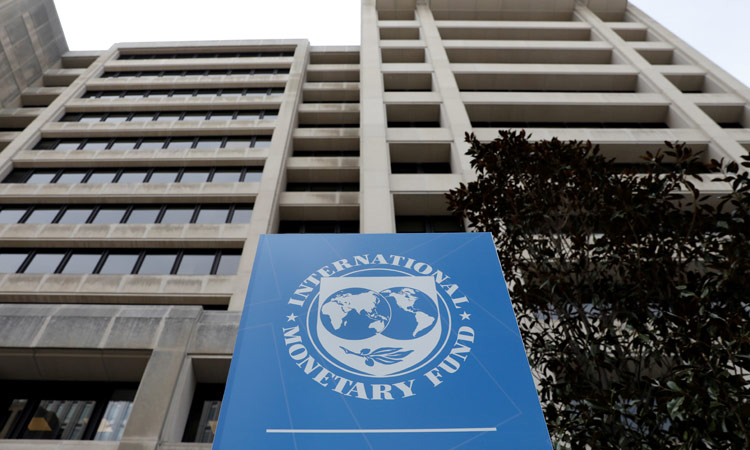IMF sees global growth below 3% in 2023

Photo used for illustrative purpose.
That is the global lender’s lowest medium-term growth forecast since 1990, and well below the average growth of 3.8% seen in the past two decades.
Georgieva said strong and coordinated monetary and fiscal policy actions to respond to the COVID-19 pandemic and Russia’s invasion of Ukraine had prevented a much worse outcome in recent years, but growth prospects remained weak in both the near- and medium-term given persistently high inflation.
“Despite surprisingly resilient labor markets and consumer spending in most advanced economies, and the uplift from China’s reopening, we expect the world economy to grow less than 3 percent in 2023,” she said in prepared remarks ahead of next week’s spring meetings of the IMF and World Bank.
“With rising geopolitical tensions and still-high inflation, a robust recovery remains elusive. This harms the prospects of everyone, especially for the most vulnerable people and countries,” she said at an event hosted by Meridian House and Politico.
Growth dropped by almost half to 3.4% in 2022 following the shock of Russia’s war in Ukraine from the 6.1% rebound seen in 2021.
She said India and China would account for half of global growth in 2023, but about 90% of advanced economies would see a decline in their growth rate this year.
Low-income countries, saddled by higher borrowing costs and weakening demand for their exports, would see per-capita income growth staying below that of emerging economies, she said.
The IMF chief called on central banks to stay the course in the fight against inflation as long as financial pressures remained limited, but to address financial stability risks when they emerge through appropriate provision of liquidity.
Recent bank failures in Switzerland and the United States had exposed risk management failures at specific banks and supervisory lapses.
“The key is to carefully monitor risks in banks and non-bank financial institutions, as well as weaknesses in sectors such as commercial real estate,” she added. “Now is not the time for complacency.”
While policymakers had responded swiftly to recent stress in the sector, concerns remained about potential “hidden” vulnerabilities at banks and nonbanks, she said.
To boost the prospects for growth and productivity, Georgieva called for major step changes, including an estimated $1 trillion a year in spending on renewable energy, and moves to avoid the fragmentation of the global economy, which could shave as much as 7% off global gross domestic product.
Technological decoupling could see some countries suffer losses of up to 12% of GDP, she said.
The next International Monetary Fund (IMF) payout to Zambia from a total loan of $1.3 billion is contingent upon its bilateral creditors reaching an agreement on a long-delayed debt restructuring, the Fund said in a statement on Thursday.
An IMF mission and Zambian officials completed a successful first review of the programme, it said. But the release of around $188 million - the loan’s second disbursement - is subject to approval of the review by the IMF Executive Board.
The board will consider the review “once the necessary financing assurances have been received,” Allison Holland, IMF Mission Chief for Zambia, said in the statement.
“An agreement with official creditors on a debt treatment in line with programme parameters would provide the needed financing assurances,” she said.
Zambia’s international bonds traded flat and were broadly unchanged on the news, with the 2024 and 2027 issues bid between 43.5 cents and 44.6 cents in the dollar, according to Tradeweb data.
In 2020, Zambia was the first African country to default in the COVID-19 era and it has struggled to finish restructuring external debt that reached $18.6 billion at the end of last year.
Many Western officials have blamed the largest bilateral creditor, China, for the delays, something Beijing denies.
Zambia Finance Minister Situmbeko Musokotwane said his country was not at fault for the delays in the process, telling Reuters in an interview that it was being “punished”.
“This is no fault of ours, it is the fault of those we engaged with,” he said in his office in Lusaka.
“We remain optimistic that working with the Official Creditor Committee and other creditors, we shall soon reach an agreement on debt restructuring,” he added in a statement issued shortly after the IMF announcement.
The IMF praised Zambia’s government for meeting all its targets and policy commitments, noting that lower than expected mining tax collection had been offset by higher tax revenues in other sectors.
“Fiscal performance has been very strong. Spending has remained within budget limits and, importantly, social spending has increased in line with government targets,” Holland said.
But, she said, low copper prices, weather-related economic shocks and delays in the debt restructuring all posed risks.
“Further (debt treatment) delays risk a worsening outlook for Zambia, delaying its return to sustainable growth, and reducing its capacity to repay,” she said.
Agencies






